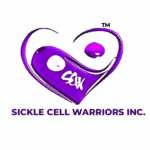 This has been a week of grants and awards…
This has been a week of grants and awards…
For starters, the Georgia Tech Nanomedicine Center just received a $16.1 million dollar/5 year grant from NIH to study sickle cell genes. We all know that sickle cell is caused by a mutation of the A to T protein on the betaglobin gene. “By directly and precisely fixing the single mutation, we hope to reduce or eliminate the sickle cell population in an individual’s blood stream and replace the sickle cells with healthy red blood cells. We think it’s a promising approach because we do not need to fix all of the mutations in all cells; we only need to greatly reduce the sickle cell population by replacing those cells with healthy red blood cells.”
For this to work, the researchers plan to shoot ZFN (zinc finger nucleases)—kinda like a gun to the sickle mutation on the DNA strand. The second phase is to use healthy donor DNA strands to regrow the chain, so that sickled cells are no longer created. If it works, this can completely change sickle cell therapy as we know it, and create a permanent solution to sickle cell disease. Read more about it HERE.
In other grant news, HRSA has awarded $1.6 million to support the Sickle Cell Disease Treatment Demonstration Program (SCDTDP). The program is designed to establish practice models for the prevention and treatment of sickle cell disease through the coordinated efforts of providers, key stake holders, affected individuals and their families. If you are in Pennsylvania or Tennesse, and have a child with sickle cell, you will probably benefit more from this grant. The grant will allow organizations to partner with Boston Medical Center, St. Judes, and SCADAA to create a standardized treatment plan for managing sickle cell in pediatrics. Read more about the grant HERE.
